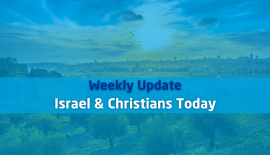Yom HaAliyah – Immigration Day
Immigration to Israel (Aliyah) is a core value of the modern State of Israel. The state was founded partly as a result of several immigration waves and has by definition seen itself as a safe haven for every Jew in the world, welcoming new immigrants since its very beginnings.
In 2016, the Israeli Parliament, the Knesset, adopted a law establishing the annual commemoration of Yom HaAliyah (Immigration Day) on the 7th of Cheshvan (this year falling on 16 October), ‘to recognise the importance of Aliyah to the land of Israel as basis for the existence of the State of Israel, for its development and reinforcement as a multicultural society’. As one of the lawmakers stated, this law also confirms who the real heirs are to the land of Israel. Immigration Day is especially marked in the school system, Government institutions, and the army. The idea was initiated by a group of young immigrants, who see it as a recognition of their contribution to the land.
Initially, the 10th of Nisan was chosen as the date of Yom HaAliyah. This was the day of the first ‘mass immigration’, the day that the Jewish people entered the land of Israel after the exodus from Egypt and the forty years’ stay in the desert (Joshua 4:19).Interestingly, the verb used in this Scripture has the same root as the word Aliyah. Literally, Aliyah means ‘to go up’. In Biblical language, you go up to the land of Israel, and to leave the land is to go down. However, since 10 Nisan is in a school vacation, just four days before Passover, the commemoration of the 10 Nisan event, and every subsequent Aliyah, is held in the fall/autumn, on 7 Cheshvan. Nevertheless, Immigration Day is a national, rather than a religious feast day.
Of course, this date is also not randomly chosen. First of all, it is in the week in which the Torah portion ‘Lech-Lecha’ (Genesis 12-17) is read in synagogue. The very name of this portion suggests the idea of ‘Aliyah’. The name is derived from the opening verse (Gen. 12:1), where God calls Abram, telling him: “Leave your country…”, literally: “Go forth (Hebrew: lech-lecha) … to the land I will show you.” Abram then is promised to become a great nation and receives God’s blessing. And Abram went, as we read in verse 4, and came in the land of Canaan, which he crossed through from Shechem to the Negev (the land of the south). He even went further to Egypt but returned to the promised land to stay there.
The 7th of Cheshvan is important also for another reason as the day on which the Jews in Israel begin to pray for rain. While Sukkot (the Feast of Tabernacles) is regarded as the beginning of the rain season in the land of Israel, it has been an ancient practice to insert the prayer for rain in the daily prayers only two weeks after Sukkot, in order to give those who came as pilgrims to Jerusalem from the far regions of the land the opportunity to return home safely and unhindered, as rain would make the roads impassable in the old days.





